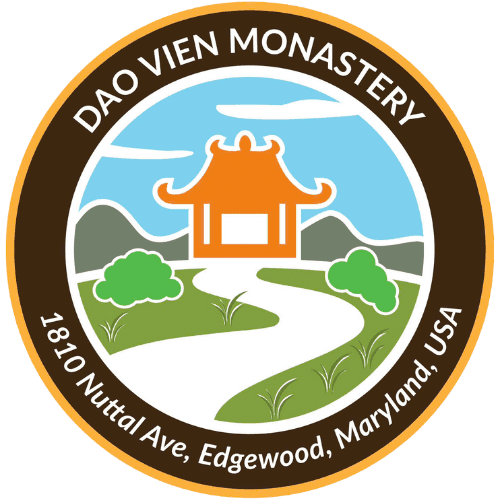I first heard Bhikkhu Thich Vien Ngo speak a few years ago at a Sunday service at Hoa Nghiem Pagoda in Fort Belvoir, Virginia. I was captivated by the depth and clarity of his explanation of Buddha Dharma in layman’s terms. Through heartfelt stories and gentle humor, his insightful sermons always leave a deep impression in my heart as I yearn to apply his teaching. Eventually, I had the honor of meeting him and received his gift of guidance in Happiness: A matter of perspective.
In this book, Bhikkhu Thich Vien Ngo masterfully blends Buddhist wisdom with Vietnamese cultural traditions to give us practical tips akin to modern psychology as a means to achieving lasting happiness. Through astute anecdotes and doctrinal accounts, he engages the reader by connecting daily encounters with ancient teachings. He shares the secrets of living a prosperous and happy life through inner reflections, self-observations, and intentional expression of suitable responses. In the first chapter, he challenges us to boldly face our sufferings head-on. He advises us to embrace life’s difficulties as precious teachers, and encourages us to listen and look deeply to understand others. For when we understand another being, we cannot help but love her.
I appreciate the relevance and ease of applying Bhikkhu Thich Vien Ngo’s teachings in my daily life One of my favorites is when he suggests we should live like our hands.” As a physician who also practices acupuncture, I am beholden to my hands for what they can accomplish, never tiring and never complaining Whether I am examining a patient, grooming the garden or washing the dishes, my hands are always perfectly synchronized with present moment without lingering in the past or anticipating the uncertain future. As I watch my hands type these words, I am in a state of grateful presence. I strive to live like my mindful hands.
The essence of Bhikkhu Thich Vien Ngo’s teachings is, in fact, rooted in mindfulness. In recent years, medical science has recognized that mindfulness meditation stimulates positive physical and functional changes in the brain. Clarity and awareness brought about through meditation decrease stress, improve moods, enhance focus, and maximize performance. Today, such leading-edge medical treatments as Acceptance and Commitment Therapy combine mindfulness with psychotherapy to facilitate self-awareness, acceptance, and responsible action through insight and proper view.
Bhikkhu Thich Vien Ngo tells us that true happiness begins with connecting with our True Self to awaken our inner light, which can shine with brilliance when we pause to connect with our Mind and gain clarity of perspective. We all possess that internal flame, capable of magnificent radiance through time-tested guidance.
Thank you, Bhikkhu Thich Vien Ngo, for the gift of wisdom that empowers us to live a life full of present moments and to act from an open and compassionate heart.
Thank you, Dr. Ton That Chieu, for translating these eloquent teachings into English so that many people can discover true happiness.
Enjoy the transformational journey as you apply the lessons!
In gratitude,
Mylene Tran Huynh, MD, MPH
McLean, Virginia

